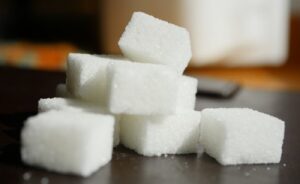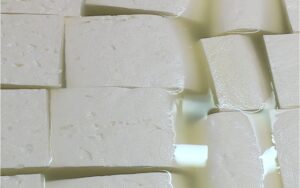
Meet the moms and dads making planet-friendly choices such as throwing zero-waste birthday parties and dressing their kids in hand-me-downs
‘Vedika will be completing her eighth rotation around the Sun on Saturday. Please send kids for her small birthday party. We sincerely request for the gift to be blessings or a used toy/book/garment wrapped up in newspaper.’
Kamana Gautum and Gowri Shanker sent out this invite for their daughter’s birthday recently. It was a party with a difference. There were no balloons, no candles on the cake and no colourful paper plates. Their Hyderabad home was decorated with paper flowers made by Gautam and the children were served hot snacks on steel plates. Vedika wore a pretty dress that a family friend had passed on. The guests didn’t arrive with gifts wrapped in glossy paper. But that didn’t lessen the fun. The children played loads of games and danced to their hearts’ content. “Plus there was zero waste at the end of the party,” says Gautam who has been hosting sustainable birthdays for Vedika and her seven-year-old brother Ekarth — they often serve guests food on banana leaves.
Vedika’s parents are among a growing section of Indians who are practising sustainable parenting with the hope of leaving a smaller carbon footprint and also raising eco-conscious children. While most parents mindlessly use diapers, wet wipes and tissues while caring for their newborns and also indulge their toddlers with new clothes and toys frequently, these earth-friendly parents are doing just the opposite. They are making their babies wear reusable cloth diapers, dressing their toddlers in hand-me-downs, ensuring their school goers don’t waste paper and encouraging their teens to buy only what they need.
Most couples say they became concerned about the planet’s health when they decided to bring a child into the world. “When I was pregnant, I started noticing what I was sending to the landfill from my dustbin. We can’t always blame the government for the situation of our country. We have to do our bit,” says Pankti Pandey, an Ahmedabad-based scientist who runs an Instagram page called ‘zerowasteadda’ to promote green living. Jumana Electriwala too became conscious when she conceived. “I walked to the hospital even when I was in labour,” says the Mumbai mommy.
BYE DIAPERS AND FORMULA
Most babies use up at least 7,000 diapers in the first two and a half years. These diapers sit in a landfill for over 500 years. Sonika Bhasin’s four-year-old son was three months old when she read these statistics online. The Mumbai-based media professional never bought a pack of disposables again. “I switched to cloth diapering. One needs to spend a little time learning how to use cloth diapers but once you do that, it is easy. We have managed without disposables even during long trips,” says Bhasin, adding that cloth diapering costs one-fifth of the amount parents shell out for disposables.
Eco-conscious moms also breastfeed for a longer time as the making of formula milk is not sustainable. It entails use of land for raising dairy cattle, factory processing units, huge volumes of clean water, plastic and metal packaging. “Moreover, moms would need to take a car or an auto to go to the chemist to buy a formula can. That further increases the carbon footprint. Every little thing matters,” says Gautam who is a lactation counsellor.
The growing eco awareness has led to a surge in the number of brands selling ‘green products’ including cotton clothes, wooden and textile toys, convertible kids gear as well as eco-friendly stationery such as plantable pencils that contain seeds. Sustainable parents, however, rarely buy these because they believe that buying less (or second hand) is better than buying something new, even if it is a green product. Production of almost all new items involves emission by factories and generates more waste which ends up in landfills. “We buy something only when we really need it,” says Bhasin, adding that 90 per cent of her son’s belongings are hand-me-downs.
Gautam bought a second-hand lehenga for her daughter for Diwali. “Kids outgrow clothes so quickly and festive wear is barely used once or twice. It is a pity that there is a taboo attached to second-hand clothing. People feel others will think they can’t afford new ones. But it is not about money, it is about utilising resources better,” she says. “I would rather buy better quality vegetables and fruits from shops that pay a fair trade price to farmers. This way I am gifting my children good health instead of materialistic things.”
Last year, actor Neha Dhupia had revealed that her daughter Mehr has worn hand-me-downs from Soha Ali Khan’s daughter Inaaya and that her newborn son was using clothes that Kareena Kapoor’s children Taimur and Jeh had outgrown. “One feels less guilty as one is not hurting the environment as much,” she said in a vlog interview when asked if celebrities recycle or reuse.
LITTLE ECO WARRIORS
Parents say their eco-consciousness rubs off on their kids, too. Bhasin’s son knows how to compost and make bio enzyme cleaners by fermenting citrus peels. Electricwala’s 16-year-old daughter makes crochet purses for friends rather than buying gifts. Pandey’s daughter was upset when her pre-school teacher advised children to throw banana peels in the dustbin instead of littering. “She told the teacher, ‘no, that’s wrong, peels go in the composter so we can make fertiliser’,” she says.
But is green parenting easy? What if your child desperately wants a colourful plastic toy? “That is natural. My daughter does get attracted to plastic toys, so I buy pre-loved ones,” says Pandey. “But this happens rarely. When you raise a sustainable kid, they have a feeling of co-existence with other living beings on the planet. My daughter loves nature and animals and does not want to harm them in any way.”
Gautam regularly talks to her children about the environment and takes them for learning trips. “We have spent time with the tribals of Madhya Pradesh and seen women walking long distances to fetch water,” she says, adding that her daughter experiences ‘eco anxiety’ when there is excessive rain or flooding.
Not every parent can achieve ‘zero-waste’ status but many are trying to make little changes. Mumbai resident Priyanka Bhattacharya Dutt encourages her children to segregate waste, use water wisely and switch off lights when leaving the room. Dutt, who is co-founder of a brand for mulmul kidswear, also refuses to personalise garments for customers. “Personalisation has become a huge trend but it is not sustainable. It is not fair to donate a garment with a name printed on it and expect another child to wear it,” she says.
Tips for sustainable parenting
The World Health Organisation recommends breastfeeding for at least two years. If you need to give formula, invest in a steel bottle
If you need a hat for a school trip, borrow it from a friend. Opt for pre-loved clothes and toys. Encourage kids to use libraries
Serve kids only a small portion of food at a time and offer a second helping if required. Encourage them to turn off the tap while brushing
You can’t dump plastic in the bin and expect kids to not do the same. Set an example by segregating waste and upcycling old items.





